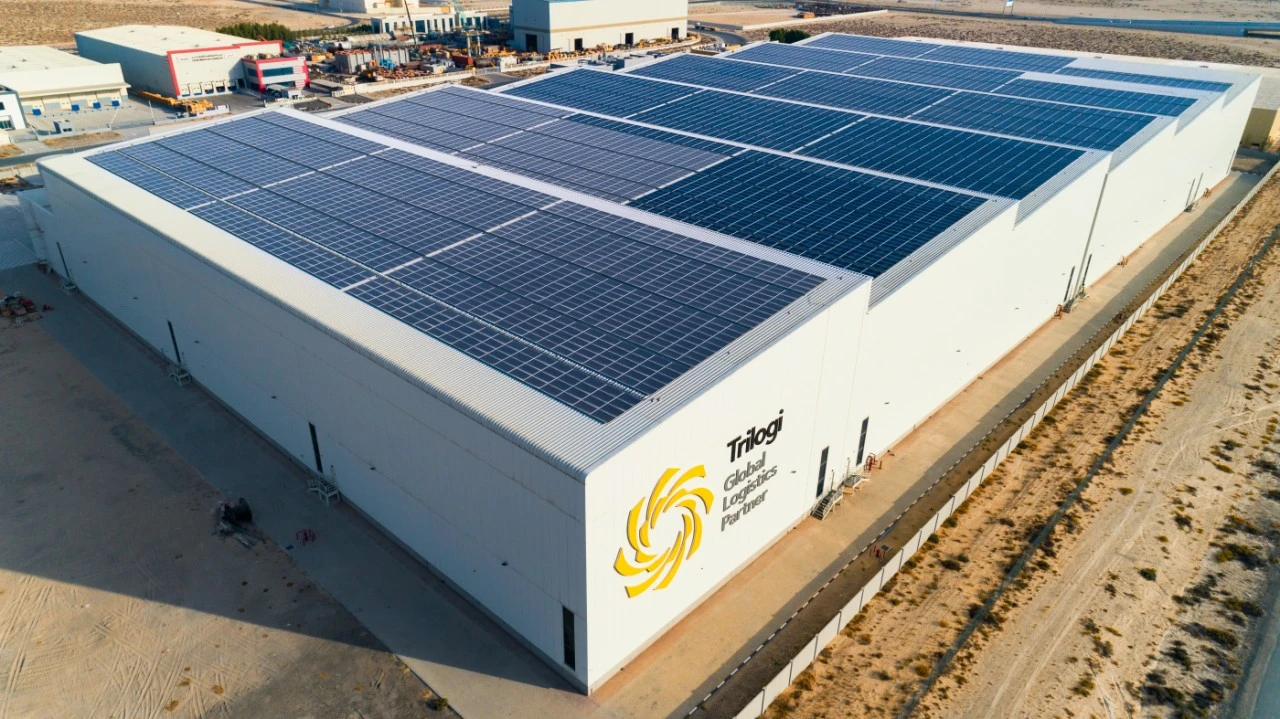
By Gilbert Abi Zeid, Vice President – Logistics
When it comes to logistics, change is not merely a constant; it is an accelerating force, shaping the landscape of supply chains, transportation, and distribution in ways previously unimaginable. GMG’s state-of-the-art logistics arm, Trilogi is also on the cusp of a profound transformation. The company believes that adopting sustainable best practices across our operations is key for the long-term viability of the logistics industry.
Honoring the UAE’s values of sustainability, Trilogi is actively monitoring and adapting new regulations, policies, and practices to reduce the industry’s environmental footprint. Here are some ways in which we are embracing sustainability in our business.
1. Harnessing renewable energy
Accountability is key to making this positive shift. The logistics and transport sector contributes just over a third of global carbon dioxide (CO2) emissions. We are fully aware of the negative environmental impact and we are committed to reducing the supply chain’s carbon footprint. We have invested in a 3,515 kWp rooftop solar installation at our Mega Distribution Center in the Jebel Ali Free Zone, offsetting more than 80% of the power consumption at the warehouse and reducing our carbon emissions by around 70,000 tons.
While the initial investment in renewable energy solutions can be high, the long-term economic benefits outweigh the costs. Hence, renewable energy is both an environmental imperative and a strategic choice for many companies like ours that are aiming to reduce their carbon footprint.
2. Taking Emission Reduction Initiatives (ERIs)
The logistics industry is considered a significant contributor to greenhouse gas (GHG) emissions. Taking stock of this, implementing ERIs can help mitigate climate change by reducing the sector’s environmental footprint.
As part of our other emission reduction initiatives, we have taken measures via our ‘Make a difference’ program, pledging to plant 1000 ghaff trees which can help in soil stabilization, microclimate improvement, and biodiversity enhancement. Along with this we have introduced biodiesel fuel for improved air quality, reduced greenhouse gas emissions, and increased energy security.
Additionally, we are also building management systems, using LED lights that are cost-effective, energy-efficient, durable, have a longer shelf life, and emit the least amount of carbon dioxide. Moreover, we have also set up a sewage treatment plant to remove harmful contaminants and an efficient waste recycling system to conserve water resources, reduce environmental impact, and enhance sustainability.
3. Optimizing supply chain operations with emerging innovations
Trilogi has also achieved substantial fuel savings by cross-utilizing its fleet across business divisions and consolidating orders for online customers. Additionally, to facilitate its e-commerce business, GMG has also explored warehouse automation, a fairly-new concept driven towards providing sorting solutions, just-in-term deliveries, route optimization, right-sized packaging solutions, etc. Taking a step in this direction, it has set up a multi-tiered distribution center in Jebel Ali Free Zone (Jafza), Dubai, featuring an automated sorter and conveyor load system, to streamline warehouse operations and increase overall throughput. And this is just the start of many such positive interventions in this sector.
Companies are investing in renewable energy and exploring AI and data analytics to better predict consumer demand, which can lead to better freight space planning. Additionally, many are also considering data-driven forecasting, AI-powered route optimization, blockchain supply chain transparency, and delivery using robots and drones. These technologies can improve logistical efficiency and positively impact the environment.
4. Measuring and reporting to ensure accountability
Measuring sustainability involves tracking key metrics and KPIs. For carbon emissions, it’s essential to measure total greenhouse gas emissions (CO2, CH4, N2O) and utilize the KPI of carbon intensity, gauging emissions per unit of product transported. It is also vital to monitor emissions across all supply chain activities, from transportation to manufacturing and packaging, and report annual emissions, along with reduction targets.
Waste reduction is another key focus, involving the metric of total waste generated in tons and the KPI of the waste diversion rate, indicating the percentage of waste recycled or repurposed. It’s also essential to regularly assess and rate suppliers based on sustainability practices and report information about supplier sustainability partnerships and initiatives.
The logistics industry is poised for a sustainable transformation. By embracing sustainable practices and technologies, we can reduce our carbon footprint, improve efficiency, and create a more sustainable future for all.